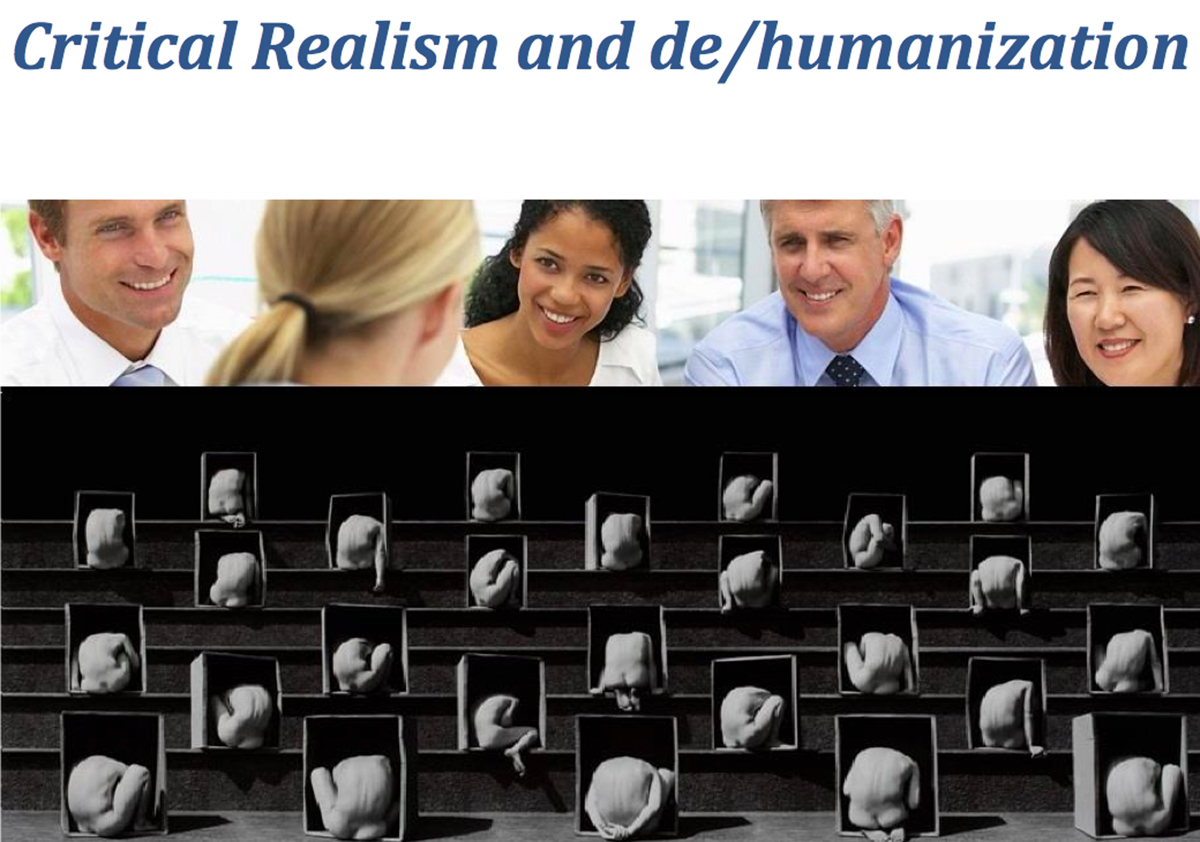Submitted by WA Contents
Call for Papers: International Association for Critical Realism 19th Annual Conference, 20-22, 2016
United Kingdom Architecture News - Feb 11, 2016 - 17:03 4854 views

image courtesy of Cardiff Business School
International Association for Critical Realism (IACR) 19th Annual Conference, 20-22 July 2016
Drs Ismael Al-Amoudi, Tim Edwards, Joe O’Mahoney
Confirmed Keynotes: Prof. M.S. Archer (London); Prof. Doug Porpora (Drexel) Confirmed panel-discussions: Prof. Andrew Sayer; Dr Wendy Olsen
Cardiff Business School presents a new conference about ''Critical Realism and de/humanization'' in social sciencies. If this theme inspires you, please send an abstract (200 words) to: [email protected] Deadline: 30 April 2016
Subsequent EGOS stream and special issues in established journals are under consideration.
Please find the full information about the conference here.
The dehumanisation of contemporary societies
In many ways, our current epoch witnesses dehumanised social relations. While alienation (Marx) and disenchantment (Weber) or the deficit in social solidarity (Durkheim) are by no means recent phenomena, processes of dehumanisation continue to prevail in most spheres of society. In the public sphere, discussions privilege compliance with bureaucratic regulations and quantifiable indicators (such as GDP and its growth) over human needs and flourishing, have the effect of excluding large portions of the electorate from public debate while accelerating the demise of the Welfare State. In the economic sphere, the financialisation of the economy and the spread of market ownership tend to privilege economic profitability over human well-being. Corporate Social Responsibility is thus deployed as a rhetorical device whose injunctions are followed mostly when they are profitable to corporate shareholders. Yet, contemporary observers of capitalism witness suffering, destitution and ethical corrosion, both in richer and in poorer countries. Equally worryingly, the private sphere also seems to have undergone dehumanisation: for instance, impersonal relations are the lot of ever-growing urban centres, whilst familial duties of care are gradually replaced either by indifference or by reliance on salaried transactions with professional carers.
The dehumanisation of the social sciences
The dehumanisation of society is mirrored, and perhaps intensified, by the exclusion of the notion of ‘human’ and ‘humanity’ from the social sciences and humanities in the second half of the 20thCentury. While philosophers such as Foucault, or more recently Butler, have warned against taken for granted conceptions of the human, their warnings seem to have produced effacement, rather than problematisation, of the category of ‘human’. The realist tradition provides, however, salutary exceptions to this trend. In his dialectical critical realism, Bhaskar (1993, 1994) advances a theory of human flourishing alongside a diagnosis of the ills of modernity. Neo-Aristotelian authors such as Sen and Nussbaum have developed political philosophies that place human capabilities at the centre of the stage. In feminist studies, Lawson (2009) advocated ‘minimal humanism’ and in sociology Archer (2000), Sayer (2011) and Smith (2010) have taken stock of the absence of human subjects from social scientific accounts and sketched the contours of a humanist social science.
Rehumanising society and the social sciences?
The purpose of this conference is to explore how critical realism (CR) can contribute to rehumanising both society and the social sciences. We welcome contributions from all areas of the humanities and social sciences. Equally welcome are contributions inspired by the various voices of CR, both within Bhaskar’s philosophy (critical naturalism, dialectical critical realism, metaReality) and by the various authors who contributed to CR’s flourishing.
> via cardiff.ac.uk
